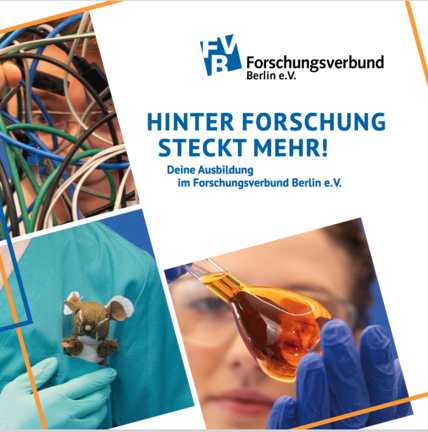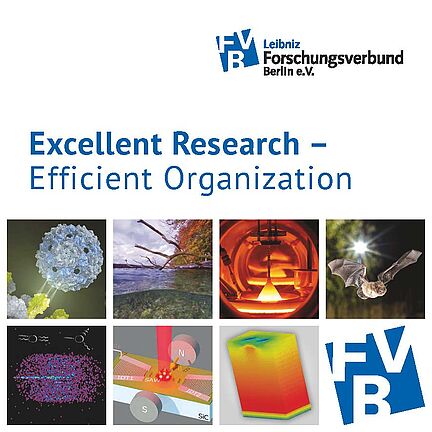Vocational Training
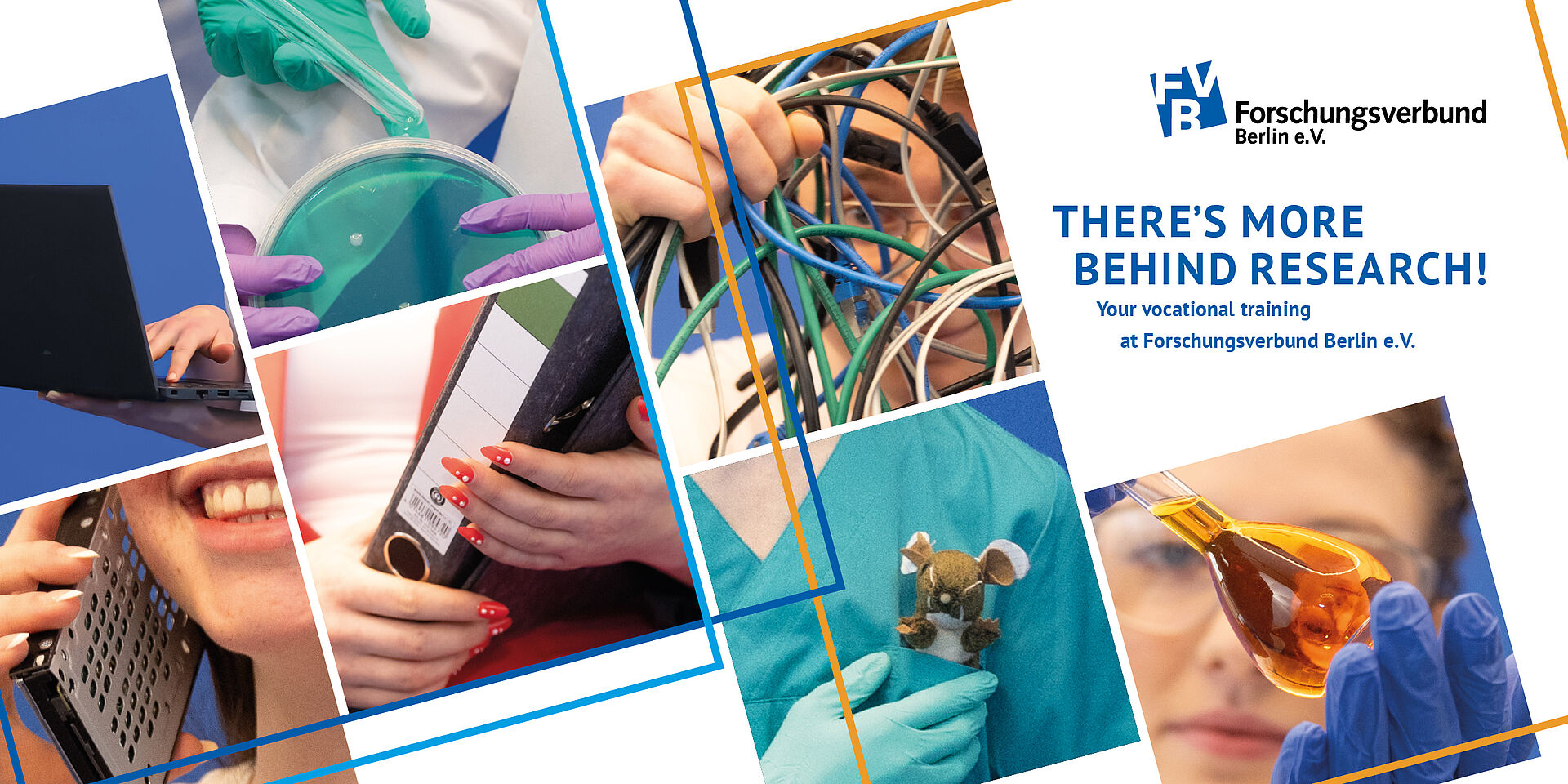
The basis for starting out on a successful career is good training. Have you finished school, maybe studied for a while, and are now in search of attractive career prospects? We will help prepare you for the world of work. Are you passionate about research, cutting-edge technologies and methods, and challenging administrative tasks? Would you like to work in a dynamic team in an environment that embraces diversity and internationalism? If so, we have the perfect opportunity for you!
The seven institutes that make up the Forschungsverbund Berlin conduct world-class research and are members of the Leibniz Association. Our scientific spectrum includes laser research for state-of-the-art medicine and high-tech applications; crystals for computer chips; new compounds for drug development; and biodiversity protection. Our institutes are home to researchers from more than 60 different countries. Together, we develop tomorrow’s methods, technologies, and products – such as in health care, communications, sensing, and environmental protection.
Research always means teamwork. During your vocational training, you will join this team and help ensure the success of research projects through your work. Thanks to the extensive and diverse training they receive, our fully fledged apprentices are highly employable – whether in research institutions and universities or in trade and industry.
Your vocational training at the Forschungsverbund
Are you eager to get to the bottom of how life works? Would you like to work with plants, animals, and microorganisms, and understand their life processes? As a biology laboratory technician, you will examine a wide variety of living organisms and analyze their genetic material, cells, tissues, and organs.
The Leibniz Institute of Freshwater Ecology and Inland Fisheries (IGB) and the Leibniz Institute for Zoo and Wildlife Research (IZW) offer you comprehensive training. The program begins with histology, which involves cutting and staining tissue. Next, you will learn to create cell cultures. Then, you will delve deeper into molecular biology, chemistry, chemical analysis, and microbiology. The program also covers medical, pharmaceutical, and toxicological aspects, as well as immunology and parasitology.
Our scientists at the institutes cannot show and teach you everything, which is why we send you on four- to twelve-week internships at places such as Charité Berlin, Freie Universität Berlin, the German Rheumatology Research Center, and professional diagnostic laboratories. You will, of course, also intern at our state-of-the-art LakeLab in Neuglobsow.
To provide the best education possible in all learning fields, IGB collaborates closely with BBZ Chemie. You will enjoy a varied and interactive learning environment involving regular switching between our modern laboratory and BBZ.
Biology laboratory technicians are in demand in a wide range of industrial and research fields. They usually support researchers by preparing, conducting, and evaluating series of experiments, such as for new drugs, water protection, and disease research control. Your future field of work may be in basic research, biotechnology, pharmacology, cosmetics, plant protection, environmental protection, or food hygiene.
Type of apprenticeship
Dual apprenticeship
3.5 years
Training institutes
- Leibniz Institute of Freshwater Ecology and Inland Fisheries (IGB)
- Leibniz Institute for Zoo and Wildlife Research (IZW)
Educational requirements
An intermediate school-leaving certificate or, preferably, a high school diploma (Abitur)
Apprenticeship content
Chemical analysis, working with laboratory animals, biochemistry, biotechnology, microbiology, molecular biology, parasitology, cell culture technology, quality management
What we expect from you
Enjoyment of biology, chemistry, and math, independence, capacity for teamwork, good knowledge of English
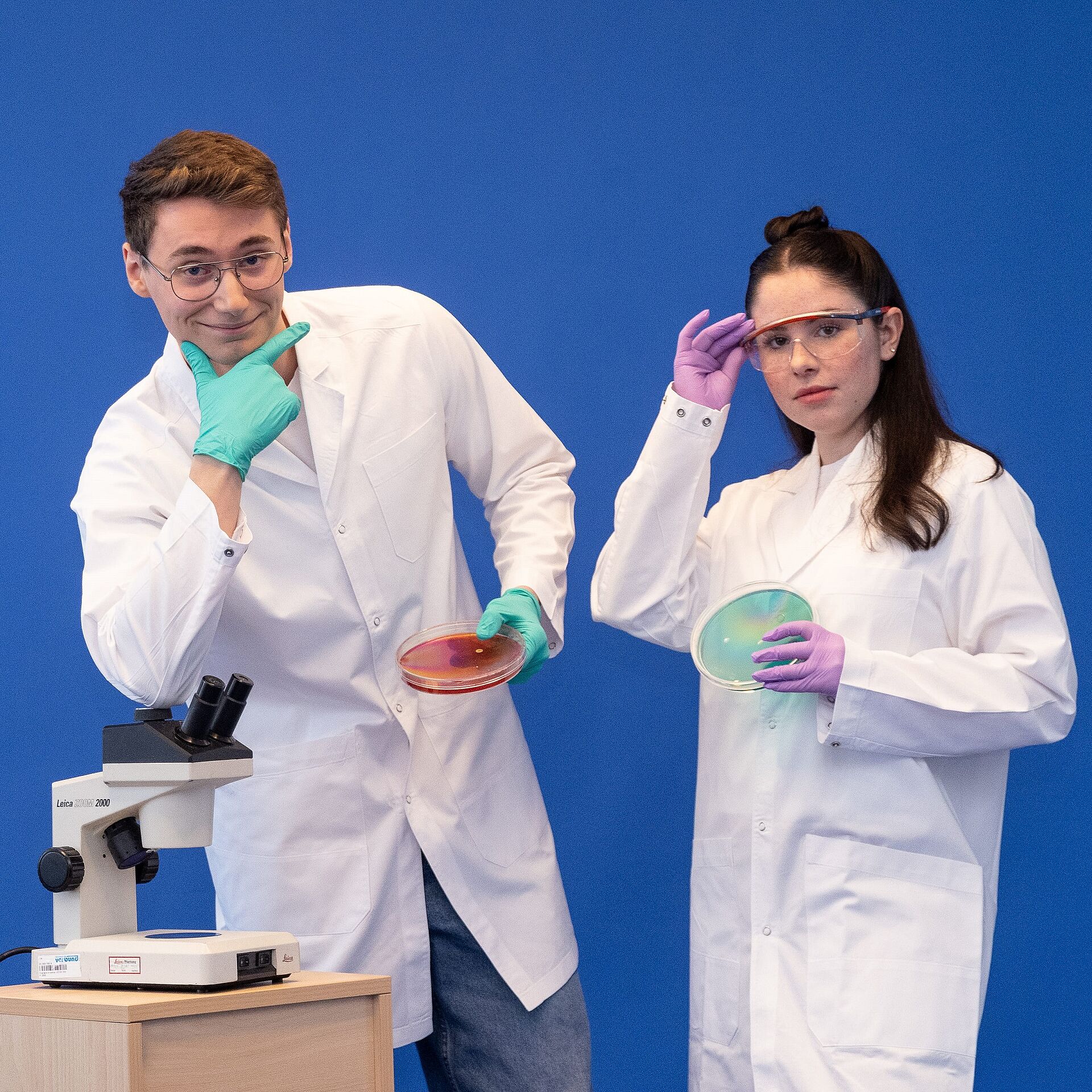
Very few people enjoy chemistry at school – but you do! You are fascinated by what holds the world together at its core. Atoms and molecules are the building blocks of all matter and the material basis of life. As a chemical laboratory technician, you will be heavily involved with them. You will work either in a preparatory capacity, synthesizing chemical compounds and preparing and conducting series of experiments, or in chemical analytics. In this role, you will separate mixtures of substances and analyze their components. You will also test substances, such as pharmaceuticals or freshwater samples, for purity.
In cooperation with Freie Universität (FU) Berlin, the Leibniz Institute of Freshwater Ecology and Inland Fisheries (IGB) offers wide-ranging training. During your first year, you will receive intensive instruction in chemical theory and practice at the FU training laboratory on the GeoCampus in Lankwitz. Then, you will join us at the Lake Müggelsee, where you will learn to use state-of-the-art analytical methods, often under the guidance of our scientists. Our research focuses on sediments, microorganisms, and other aquatic organisms, as well as pollutant loads and nutrient cycles in lakes and rivers.
An essential part of our work at the institute involves taking samples, preparing them using chromatographic methods, and analyzing them using various spectroscopic and spectrometric techniques.
As a chemical laboratory technician, you will likely pursue a career in the chemical or pharmaceutical industry or support scientists at research institutes or universities. Another option is to train to become a state-certified technician.
Type of apprenticeship
Dual apprenticeship
3.5 years
Training institute
Educational requirements
Intermediate school-leaving certificate or high school diploma (Abitur)
Apprenticeship content
Chemistry, physics, math, synthesis, chemical analysis, spectroscopy, photometry
What we expect from you
An understanding of science, capacity for teamwork, reliability, good knowledge of English
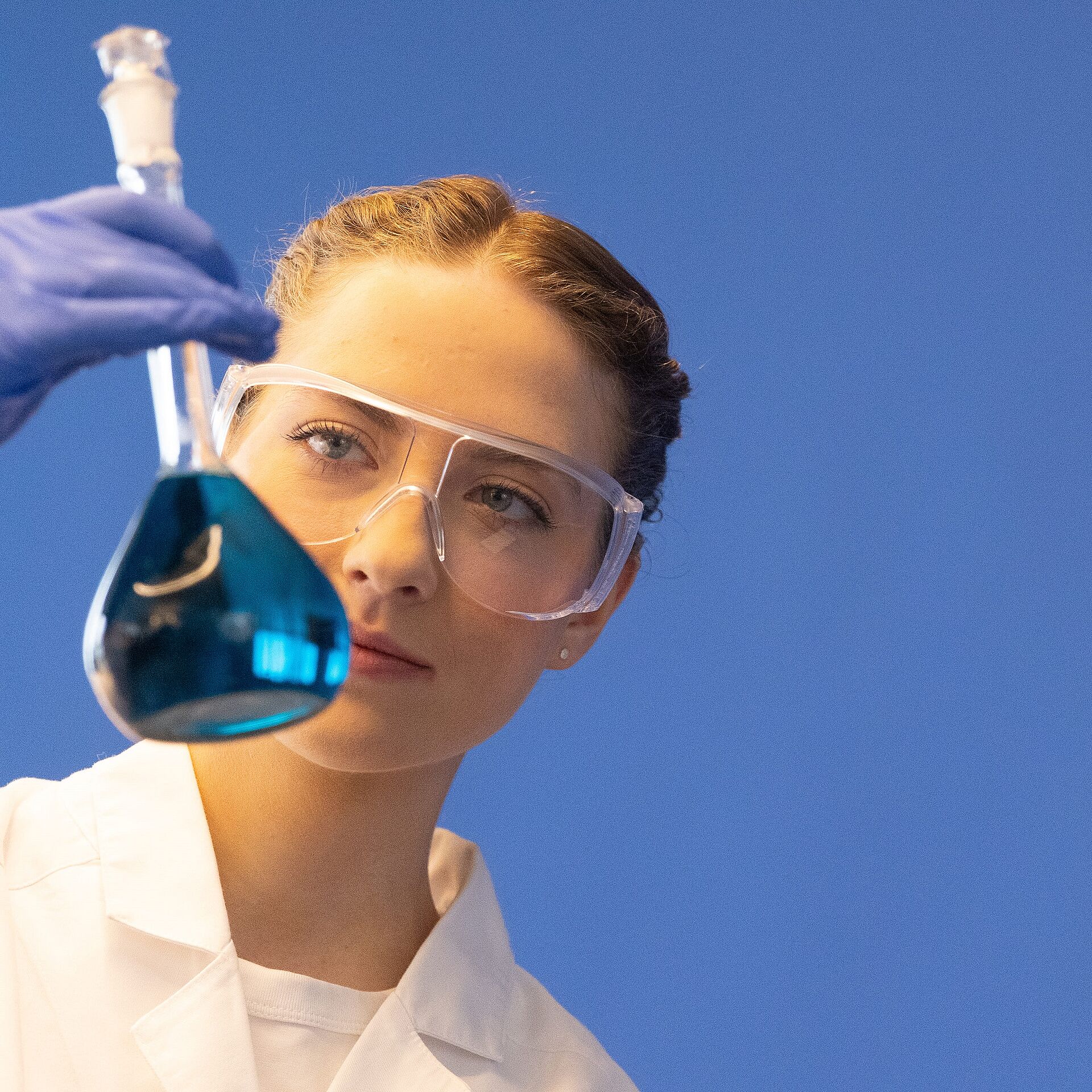
Computers are your world. Do you dream of designing, setting up, and maintaining large networks? Then why not consider training at the Forschungsverbund Berlin to become an IT specialist in systems integration. This apprenticeship is offered by our Joint Administration and three of our research institutes.
Why choose us over becoming an apprentice at a computer store. In short, because we cover a broad range of IT fields. We operate a citywide network that connects our eight locations. Our responsibilities also include server and network administration (operation, configuration, and troubleshooting), as well as providing users with computers and software (systems integration). At our institutes, you will also set up measuring stations and carry out programming tasks. You should be open and outgoing. After all, most of our customers are scientists with lots of questions who want to receive technical training and solid advice from you.
During your apprenticeship, you can choose the area in which you would like to expand your knowledge. After successfully completing your apprenticeship, you may have the opportunity to gain further professional experience with us at the Forschungsverbund. IT specialists are in demand at software companies, among users of information and telecommunications systems, and at network providers, to name a few.
Type of apprenticeship
Dual apprenticeship
3 years
Training institutes
- FVB Joint Administration (JA)
- Leibniz Institute of Freshwater Ecology and Inland Fisheries (IGB)
- Leibniz-Institut für Kristallzüchtung (IKZ)
- Leibniz Institute for Zoo and Wildlife Research (IZW)
Educational requirements
Intermediate school-leaving certificate or high school diploma (Abitur)
Apprenticeship content
Installation and configuration of networked IT systems, project planning, procurement, provision of advice and training to users, data protection, system maintenance
What we expect from you
An interest in technology and logic, perseverance, independence, good knowledge of English
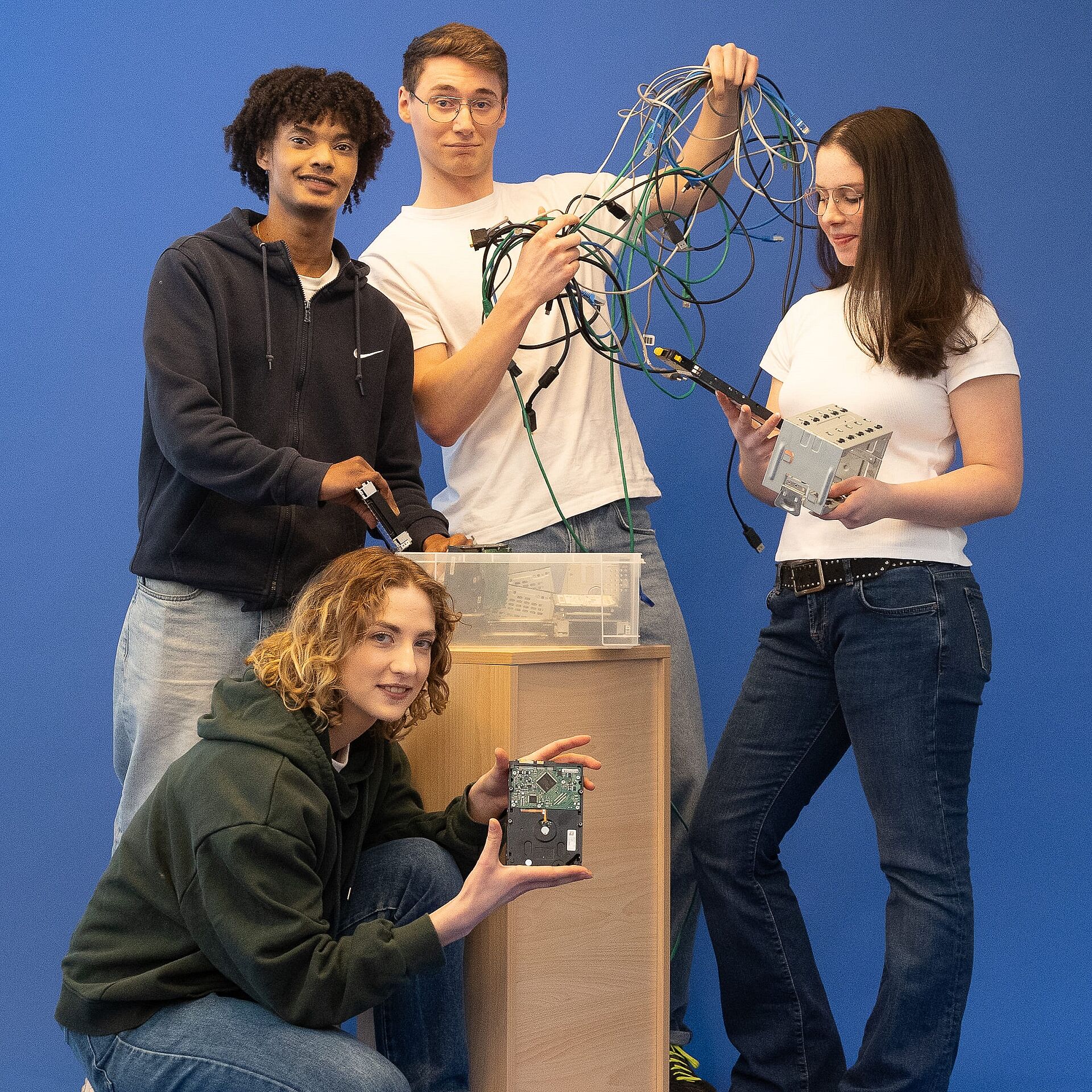
Are you a talented organizer with digital skills who enjoys working with people and keeping track of things? Do you think you are capable of using Excel spreadsheets and various digital tools for tasks such as leave requests, monthly statements, and financial account overviews? Can you also keep track of your schedule and that of your trainer? If so, office management assistant is the ideal profession for you!
This apprenticeship is offered by our Joint Administration as well as four of our research institutes. At the Forschungsverbund, you will learn about human resources, procurement, finance, secretarial work, and our research departments.
Your responsibilities will include internal and external correspondence; procuring office supplies; preparing meetings or business trips and travel expenses; coordinating appointments; and organizing events.
Your work will provide significant support to our scientists, enabling them to focus on their research. Office management assistants are in demand in companies of all kinds, as well as in research institutions and the public sector.
Type of apprenticeship
Dual apprenticeship
3 years
Training institutes
- FVB Joint Administration (JA)
- Leibniz Institute of Freshwater Ecology and Inland Fisheries (IGB)
- Leibniz-Institut für Kristallzüchtung (IKZ)
- Leibniz Institute for Zoo and Wildlife Research (IZW)
- Max Born Institute for Nonlinear Optics and Short Pulse Spectroscopy (MBI)
- Paul-Drude-Institut für Festkörperelektronik (PDI) (as a training center)
Educational requirements
Intermediate school-leaving certificate or high school diploma (Abitur)
Apprenticeship content
Work organization, bookkeeping, commercial accounting, customer relationship maintenance, information processing, marketing, HR management, tax and social security issues, procurement of materials and installations
What we expect from you
Capacity for teamwork, quick perception, communication skills, good knowledge of English

Does the fun start for you when formulas get complicated? Do you love puzzles? Can you think logically? Are you patient enough to get to the bottom of things? If so, a career as a mathematical/technical software developer is right for you!
In this job, you will use mathematical models to solve problems in engineering, computer science, the natural sciences, and business. As a result, your fields of work will be diverse, and your expertise will be in demand at banks, insurance companies, IT companies, research institutions, data centers, and universities.
At the Weierstrass Institute for Applied Analysis and Stochastics (WIAS), a world-renowned research institute, we offer you particularly diverse training. First, you will expand your mathematical knowledge and learn various programming languages. Then, you will apply this knowledge to the design and implementation of software solutions for scientifically relevant problems in fields such as medicine, climate research, energy conversion, material modeling, and nanoelectronics.
Starting in your second year, you will work alongside scientists from various countries as part of a team and gain exciting insights into current WIAS research.
Type of apprenticeship
Dual apprenticeship
3 years
Training institute
Educational requirements
A good intermediate school-leaving certificate or high school diploma (Abitur)
Apprenticeship content
Mathematical methods, models and algorithms, planning and implementation of software solutions, data modeling, object-oriented programming, test strategies, documentation, business organization, project management
What we expect from you
An understanding of math, good knowledge of English, teamwork and communication skills, ability to work independently and responsibly

Are you okay with only wearing your favorite sneakers outside work? If not, we suggest you continue browsing! After all, you’ll be better off with all-terrain footwear at our workplace. Did you ride horses as a child or do you have a dog? Are you comfortable around large animals? Are you aware of the difference between animal care and petting animals? Great, because animal care involves more than just bottle-feeding cute baby animals.
At the Leibniz Institute for Zoo and Wildlife Research’s (IZW) field research station, for example, you will encounter deer, hares, marmots, sheep, donkeys, and goats. Your responsibilities will include caring for the animals, observing their behavior and health, and occasionally assisting our researchers with their experiments. Much of the work involves maintaining the enclosures. This includes repairing fences, building paddocks, and mowing the lawn – whatever needs to be done. Of course, our animals also need to be fed on public holidays and weekends, you will occasionally be asked to work on those days. In return, you’ll get time off during the week or be able to extend your vacation by the number of days worked. Incidentally, we do not allow petting because these are wild animals that must not become tame.
At Leibniz-IZW, you will have the opportunity to observe our veterinarians and pathologists at work. During internships at a zoo in Berlin or Leipzig, you will learn how to handle exotic animals such as lions, tigers, and elephants. Your future workplace could be a zoo or animal park, veterinary clinic, pet boarding facility, or a research institute like ours.
Type of apprenticeship
Dual apprenticeship
3 years
Training institute
Educational requirements
Intermediate school-leaving certificate (with good grades in biology) or high school diploma (Abitur)
Apprenticeship content
Biology of animals, keeping animals, subject-specific math, feed science, animal welfare and nature conservation legislation, hygiene, practical training in the field station
What we expect from you
Previous internships at a zoo or veterinary clinic, or a voluntary ecological year (FÖJ), reliability, openness to criticism, capacity for teamwork, good knowledge of English

If you don’t just think animals are cute, but are also genuinely interested in their care, health, and behavior, then this is the place for you.
At the Leibniz-Forschungsinstitut für Molekulare Pharmakologie (FMP) in Berlin-Buch, you can train to become an animal caretaker specializing in research and clinics. You will work with mice and clawed frogs, gaining insights into cutting-edge basic research. During your apprenticeship, you will complete internships at institutions such as Charité in Berlin, Freie Universität Berlin, and the Max Delbrück Center, where you will also learn about other animal species such as rats, rabbits, poultry, and fish.
Does that sound exciting? If that’s the case, then you shouldn’t have any reservations about animal testing. You will help scientists make progress in their research while complying with all animal welfare regulations. This job requires responsibility, tact, and care.
Your daily work during your apprenticeship will be varied. You will perform daily health checks, feed the animals, clean the cages, and assist with minor procedures, such as taking blood samples – always under the supervision of a veterinarian. You will also be responsible for administrative tasks, such as maintaining records and documentation. Long fingernails or facial jewelry? Neither is allowed here – hygiene and safety come first. After completing your training, you will have excellent opportunities to continue working in your field at a research institute.
PS: Unfortunately, contact with rodents outside the FMP is not permitted during the apprenticeship to prevent the transmission of disease to the laboratory animals.
Type of apprenticeship
Dual apprenticeship
3 years
Training institute
Educational requirements
Intermediate school-leaving certificate or high school diploma (Abitur)
Apprenticeship content
Animal biology, animal nutrition, animal welfare and conservation law, hygiene, procedures and methods for caring for and transporting animals, animal identification, recording biological and physiological data, identifying signs of disease, carrying out treatments and procedures, insight into techniques such as embryo transfer, blood sampling from laboratory animals, pain management and anesthesia, and instrument, skin, and surface disinfection
What we expect from you
Reliability, openness to criticism, capacity for teamwork, good knowledge of English, careful and responsible handling of animals, resilience
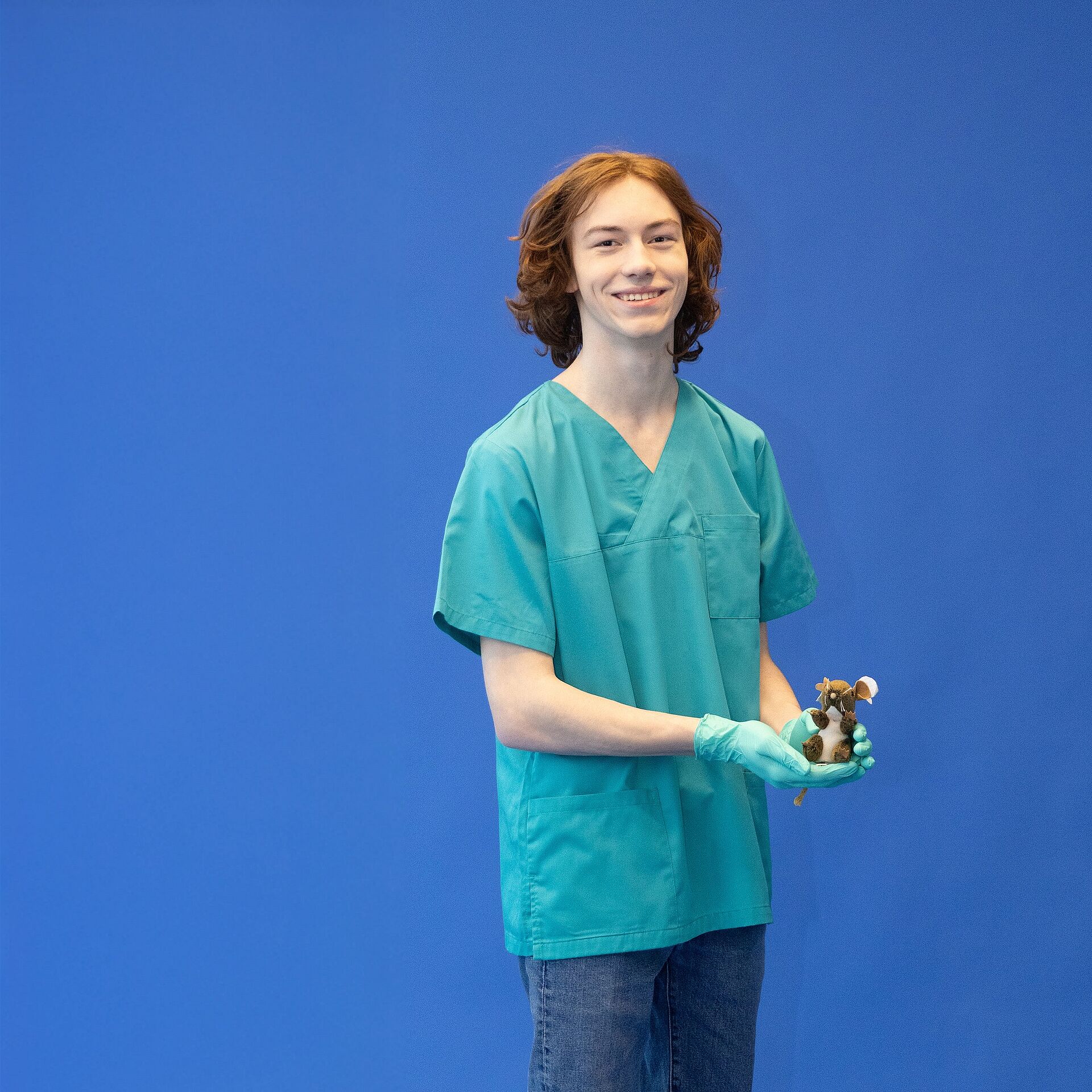
You have a natural talent for model making. Do you know all about the various tools of the trade, can operate a drill with your eyes closed, and know that files aren’t just for manicures? Perfect – you’re exactly who we’re looking for! Why not train to become a cutting machine operator at the Leibniz-Institut für Kristallzüchtung (IKZ)?
At IKZ, we develop technologies for producing high-purity semiconductor crystals used in microelectronics, optoelectronics, and other fields.
Cutting machine operators produce components according to specifications and plan and optimize manufacturing processes. We offer you comprehensive training in collaboration with a Berlin-based partner, where, following a manual aptitude test, you will receive your basic training. You will first learn the fundamentals of metalworking – such as drilling, milling, turning, and sawing – as well as measuring and testing components.
What sets our workshop apart is that we don’t just work with metal; we work with every imaginable material. Scientists commission us to manufacture components from materials such as graphite, wood, various plastics, and metals, including gold, silver, and platinum. These highly customized, special-purpose components are required for our crystal growth facilities. Any processing techniques that we do not use at the institute are taught in external courses.
Your future field of work will be very diverse, as cutting machine operators are needed in many areas of industry and the private sector.
Type of apprenticeship
Dual apprenticeship
3.5 years
Training institute
Educational requirements
Intermediate school-leaving certificate or high school diploma (Abitur)
Apprenticeship content
Metal processing techniques, production of components, planning and optimization of production processes, quality management, environmental protection
What we expect from you
Manual skills, versatility, patience, capacity for teamwork

Stellenangebote
How to apply
Intrigued? The institutes and the Joint Administration of the Forschungsverbund are always looking for apprentices. If you find an apprenticeship vacancy that interests you, simply apply online – no paperwork required! Our job advertisements contain instructions on how to apply. You will need a few documents for your application: in your letter of motivation, tell us about yourself and why you want to pursue the advertised apprenticeship. We will also ask you for your resume, references, and certificates. We look forward to getting to know you!
Good to know!
- The Forschungsverbund attaches great importance to family friendliness. Do you have children or care for relatives? No problem! We will work with you to organize your workday so that you can be there for your family. Our trainers will support you in achieving your learning goals.
- We are committed to making everyone feel welcome and comfortable at the Forschungsverbund, regardless of their age, disability, ethnicity, social background, gender identity, sexual orientation, nationality, religion, or worldview. Women and individuals with a migration background are particularly encouraged to apply. Of course, applications from people with severe disabilities or equal status under the Ninth Book of the Social Code (SGB IX) will be given preferential consideration if they have the same qualifications and skills.
Benefits
Training at the Forschungsverbund? Definitely worthwhile!
Are you interested in completing an apprenticeship at one of the institutes or in the Joint Administration of the Forschungsverbund? Would you like to support science and research through your work?
You can look forward to friendly colleagues, a varied workday, and interactions with other research institutes beyond your apprenticeship.
The Public Sector Collective Agreement offers all apprentices a variety of benefits:
- 30 days of leave with a five-day workweek
- Five additional days of leave to prepare for exams
- Annual special payment in November
- €50 learning materials allowance every September
- Company pension scheme
- Capital accumulation benefits
- Training allowance starting at €1,000 per month in the first year of training
- A €400 bonus for completing the apprenticeship
Good results and/or good grades in your high school diploma (Abitur) may shorten the length of your apprenticeship.
Each of our institutes offers additional individual benefits. You can learn more about them further down the page.
Locations
Choose where you would like to complete your apprenticeship!
Both the institutes and the Joint Administration of the Forschungsverbund offer apprenticeships. For example, you can apply to become an IT specialist at the Leibniz Institute of Freshwater Ecology and Inland Fisheries at the lake Müggelsee or the Leibniz Institute for Zoo and Wildlife Research in Friedrichsfelde. Each location has different colleagues and a different training program. You can find an overview of our locations here.
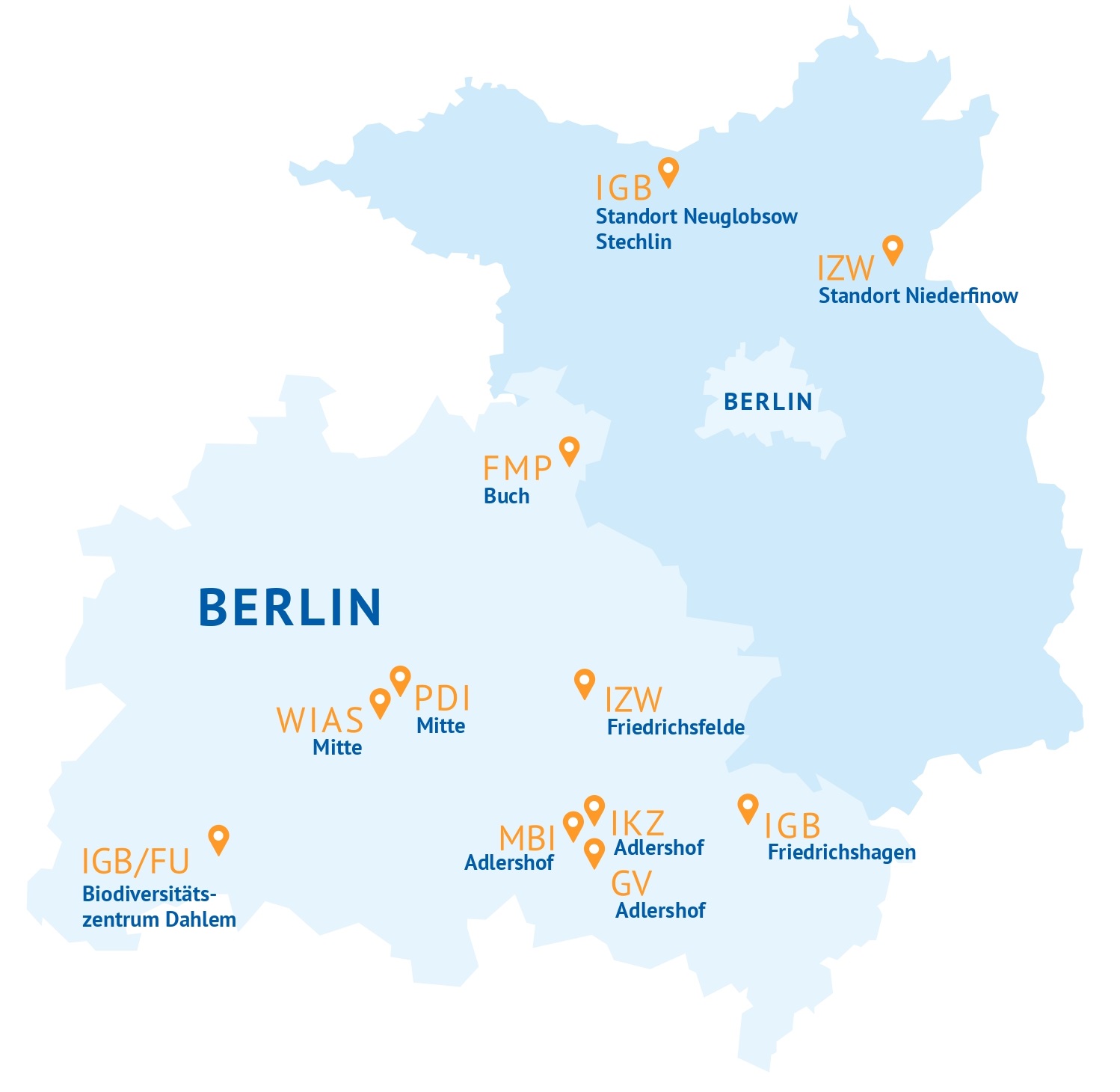

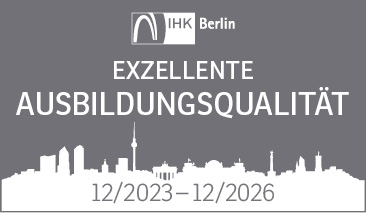
IGB | Leibniz Institute of Freshwater Ecology and Inland Fisheries
Research for the future of our freshwaters – this is the IGB motto. Environmental changes caused by climate change primarily affect bodies of water, such as lakes, rivers, oceans, and even moors, around the world. In addition to observing these developments, researchers are working on sustainable management measures for our freshwater ecosystems and their inhabitants.
These apprenticeships await you at IGB: Biology Laboratory Technician (in cooperation with BBZ Chemie in Adlershof), Chemical Laboratory Technician (in cooperation with Freie Universität Berlin), IT Specialist, Office Management Assistant
Advantages of training at IGB: Possibility of a stay abroad if you perform well, travel allowance for using public transportation, tandem programs with other research institutions and the Joint Administration of the FVB
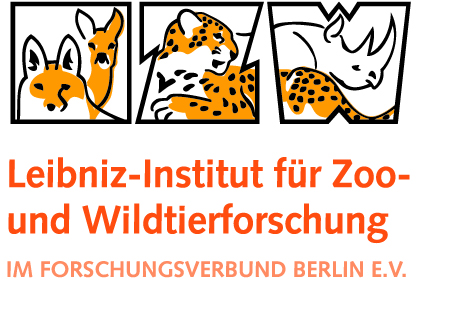
IZW | Leibniz Institute for Zoo and Wildlife Research
IZW seeks to understand how animals around the world are coping with the changes brought about by global climate change. Its research areas range from genetics and reproduction to the ecology and diseases affecting animals in captivity and in the wild. Based on these findings, researchers develop new species conservation strategies.
These apprenticeships await you at IZW: Biology Laboratory Technician, IT Specialist, Office Management Assistant, Animal Caretaker
Advantage of training at IZW: Free admission to Berlin’s Tierpark (Mon–Fri)
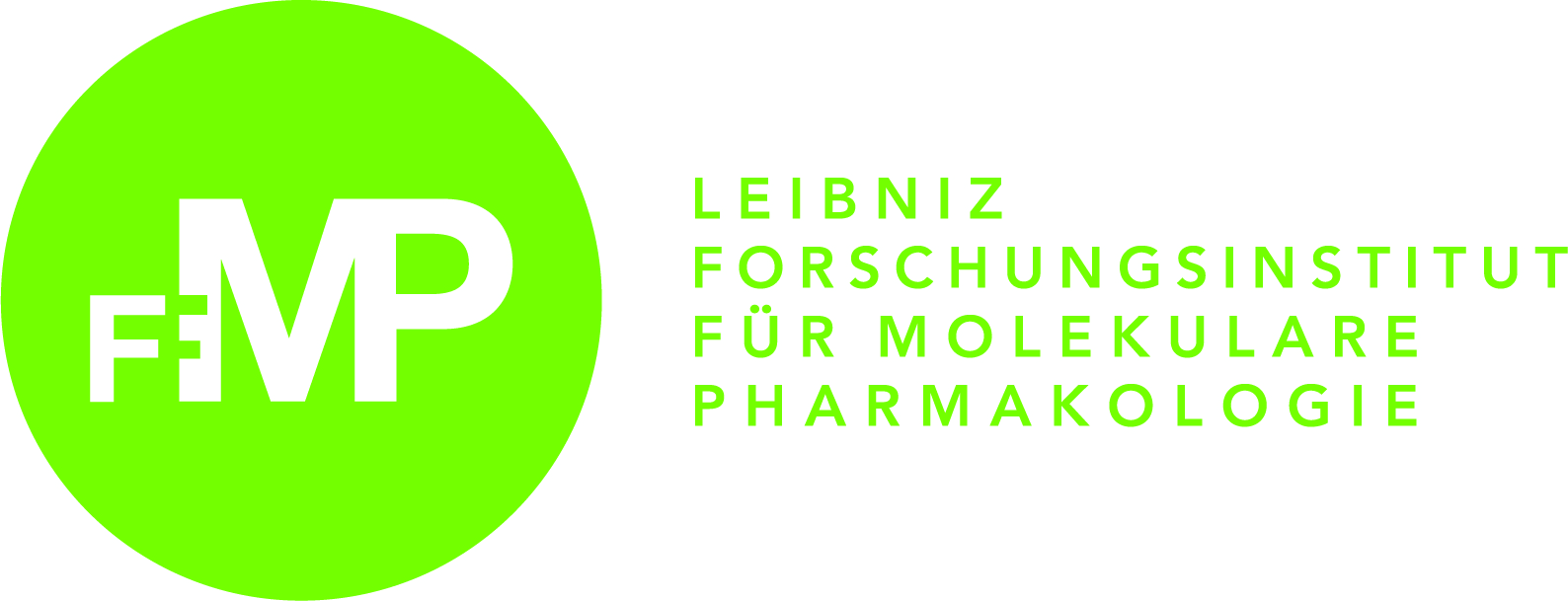
FMP | Leibniz-Forschungsinstitut für Molekulare Pharmakologie
The FMP studies substances and their effects on human cells. This basic research aims to facilitate the discovery of new drugs for diagnosing, preventing, or treating diseases in the future.
This apprenticeship awaits you at the FMP: Animal Caretaker specializing in Research and Clinics
FMPAdvantages of training at the FMP: Possibility of an Erasmus+ stay abroad, lots of collaborative work with other research institutions

IZW | Leibniz Institute for Zoo and Wildlife Research
IZW seeks to understand how animals around the world are coping with the changes brought about by global climate change. Its research areas range from genetics and reproduction to the ecology and diseases affecting animals in captivity and in the wild. Based on these findings, researchers develop new species conservation strategies.
These apprenticeships await you at IZW: Biology Laboratory Technician, IT Specialist, Office Management Assistant, Animal Caretaker
Advantage of training at IZW: Free admission to Berlin’s Tierpark (Mon–Fri)
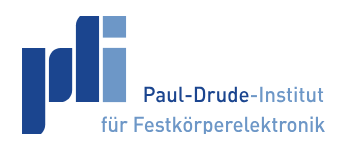
PDI | Paul-Drude-Institut für Festkörperelektronik
PDI manufactures nanomaterials with atomic precision. Scientists at PDI use these nanomaterials to create structures with very specific properties that are important for quantum technologies. In doing so, they develop new, innovative ideas for manufacturing electronic components.
At this institute, nanotechnologists and scientists work closely together to explore this exciting field. PDI could be a stop on your FVB training journey if you want to become an office management assistant, for example.
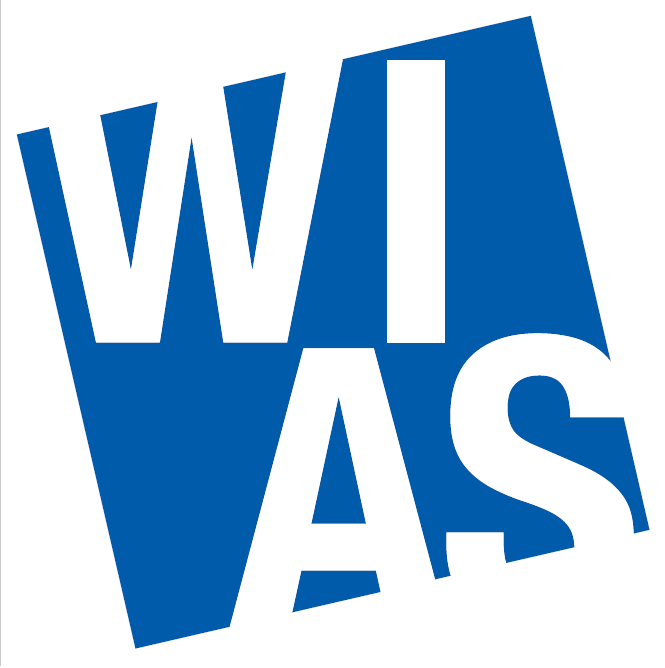
WIAS | Weierstrass Institute for Applied Analysis and Stochastics
WIAS conducts project-oriented research in applied mathematics. The goal is to help solve complex technological, scientific, and business problems. WIAS researchers are involved in every step of the scientific solution process, working closely with industry and research users.
This apprenticeship awaits you at WIAS: Mathematical/Technical Software Developer


IGB | Leibniz Institute of Freshwater Ecology and Inland Fisheries
Research for the future of our freshwaters – this is the IGB motto. Environmental changes caused by climate change primarily affect bodies of water, such as lakes, rivers, oceans, and even moors, around the world. In addition to observing these developments, researchers are working on sustainable management measures for our freshwater ecosystems and their inhabitants.
These apprenticeships await you at IGB: Biology Laboratory Technician (in cooperation with BBZ Chemie in Adlershof), Chemical Laboratory Technician (in cooperation with Freie Universität Berlin), IT Specialist, Office Management Assistant
Advantages of training at IGB: Possibility of a stay abroad if you perform well, travel allowance for using public transportation, tandem programs with other research institutions and the Joint Administration of the FVB

MBI | Max Born Institute for Nonlinear Optics and Short Pulse Spectroscopy
At the Max Born Institute, researchers explore the interaction between light and matter using lasers. The processes they study occur in unimaginably short periods of time. This presents scientists with the constant challenge of observing such ultra-fast processes.
This apprenticeship awaits you at MBI: Office Management Assistant
IKZ | Leibniz-Institut für Kristallzüchtung
KZ conducts research into crystalline materials. These materials are essential to many modern technologies, including artificial intelligence, renewable energy sources, and advanced surgical techniques in hospitals. IKZ not only explores crystals, but also cultivates and supplies them to the industry.
These apprenticeships await you at IKZ: IT Specialist, Office Management Assistant, Cutting Machine Operator

JA | Joint Administration of the Forschungsverbund
You might think of the JA as the Forschungsverbund data center. Most administrative processes at the institutes, including finance, human resources, construction and facility management, purchasing, and IT, are coordinated from here.
These apprenticeships await you in the JA: IT Specialist, Office Management Assistant
Advantages of training in the JA: Coverage of costs for vocational school textbooks and learning materials for exam preparation, paid leave for up to four weeks abroad during the training period, exchange with FVB research institutes


IGB | Leibniz Institute of Freshwater Ecology and Inland Fisheries
Research for the future of our freshwaters – this is the IGB motto. Environmental changes caused by climate change primarily affect bodies of water, such as lakes, rivers, oceans, and even moors, around the world. In addition to observing these developments, researchers are working on sustainable management measures for our freshwater ecosystems and their inhabitants.
These apprenticeships await you at IGB: Biology Laboratory Technician (in cooperation with BBZ Chemie in Adlershof), Chemical Laboratory Technician (in cooperation with Freie Universität Berlin), IT Specialist, Office Management Assistant
Advantages of training at IGB: Possibility of a stay abroad if you perform well, travel allowance for using public transportation, tandem programs with other research institutions and the Joint Administration of the FVB
